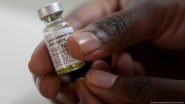Taipei, Jan 10 (AP) Further deadlock and heightened pressure from China is the likely outcome if Taiwan's independence-leading President Tsai Ing-wen wins a second term this weekend, as is widely predicted.
Tsai had been leading by a comfortable margin in most polls before the standard blackout period on surveys was imposed 10 days before Saturday's elections.
Despite her party losing badly in local elections 14 months ago, Tsai has been buoyed by hostile words and actions from China and months of anti-government protests in Hong Kong, which she says proves that Beijing's “one country, two systems" formula by which it proposes to govern Taiwan is untenable.
Tsai's position has been bolstered also by stability in the island's high-tech economy, where stock market prices have remained robust and wages shown slight gains, partly as a result of Taiwanese exporters relocating from China to avoid the bruising effects of the U.S.-China trade war.
Her chief opponent, Han Kuo-yu of the opposition Nationalist Party, has slumped in the polls following a series of gaffes and allegations of shady financial deals. He has clung to a pro-China policy despite widespread distrust of the mainland and a strong backlash against Beijing's handling of the Hong Kong protests.
Voters will also elect a 113-member legislature, where Tsai's Democratic Progressive Party currently has 68 seats. The Nationalists hold 35 seats with the rest taken by minor parties and independents.
While Taiwanese elections generally revolve around economic, public welfare and social justice issues, China's threat to annex Taiwan by force always looms large in the background, and even more so this year.
China has taken an especially hard-line against Tsai since her 2016 inauguration, infuriated by her refusal to endorse its claim that Taiwan and the mainland are part of a single China.
Beijing cut off all formal ties with her government, restricted visits by Chinese tourists, excluded Taiwan's representatives from international gatherings and peeled away more of the island's remaining diplomatic allies, leaving it with just 15.
Stepping up its threats, Beijing has in recent months held military exercises across the Taiwan Strait, sailed both of its aircraft carriers through the waterway that divides Taiwan from the mainland and flown air patrols around the island.
However, in an apparent effort to avoid antagonizing voters, Chinese leader Xi Jinping didn't renew the threat of using force against Taiwan during his annual New Year's Eve address, though reiterated China's firm opposition to Taiwan's formal independence. Chinese state media have been notably silent on the election campaign.
Analysts say the low-key approach masks a more subtle campaign to back Han and Nationalist candidates for the legislature through media manipulation and social media campaigns.
Seeking to scupper such attempts, the legislature last month passed an anti-infiltration bill laying out fines and prison sentences for those seeking to manipulate Taiwan's political system on behalf of China or other foreign powers.
In comments to the international media on Thursday, Taiwan's Foreign Minister Joseph Wu said Tsai's government doesn't plan to rock the boat with a formal declaration of independence.
“Maintaining the status quo is in the best interest of everyone concerned. We will not provoke any conflict with China, but we are absolutely determined to defend Taiwan's democracy,” Wu said. (AFP)
(This is an unedited and auto-generated story from Syndicated News feed, LatestLY Staff may not have modified or edited the content body)













 Quickly
Quickly





















